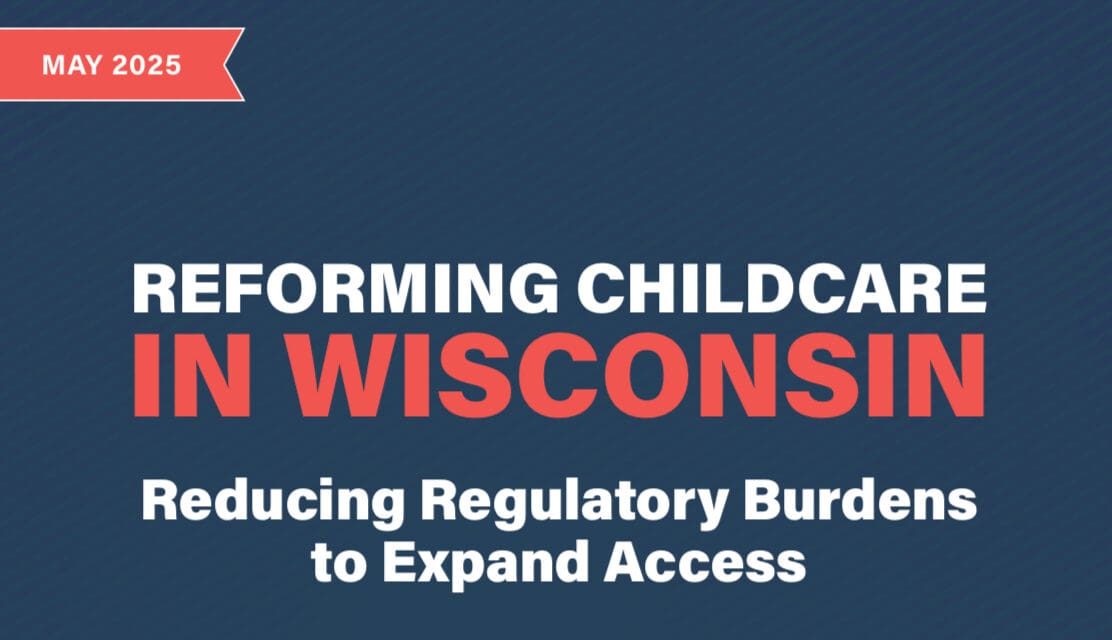The Wisconsin Institute for Law & Liberty (WILL), in collaboration with the Archbridge Institute, has released a report titled “Reforming Childcare in Wisconsin: Reducing Regulatory Burdens to Expand Access.” The report identifies Wisconsin as the 10th most restrictive state concerning childcare regulations, surpassing states like California, Illinois, and Michigan.
According to the report, the average monthly childcare cost in Wisconsin stands at $915 per child, representing approximately 17% of the median household income for families with young children. This financial burden is notably higher compared to neighboring states, where childcare expenses consume 3–7% less of household income.
The report highlights the broader economic implications of limited childcare access, noting that nearly 80% of women and about 25% of men who exit the workforce do so to provide home and childcare. With only 54 available workers for every 100 job openings, the state faces a significant skilled worker shortage.
Miranda Spindt, a policy associate at WILL, emphasized the need for regulatory changes, stating, “Wisconsin families are facing a crisis of affordability and access when it comes to childcare. This report demonstrates that unnecessary regulations are a significant contributing factor. While ensuring the health and safety of children is paramount, the current regulatory framework is simply outdated and places a significant financial burden on hardworking families.”
WILL’s analysis points to specific regulations contributing to increased childcare costs. For instance, increasing the infant-to-staff ratio by one infant could potentially reduce childcare costs by 9–20%. Additionally, mandating that lead teachers possess a high school diploma is associated with a 25–46% increase in costs.
In 2023, legislative efforts in Wisconsin aimed to address these challenges. Bills such as AB 389, AB 391, and AB 392 proposed measures including the creation of a new licensing category for family childcare, more flexible staffing ratios, and streamlined regulations for certified providers. While these bills passed the State Assembly, they did not advance in the Senate.
The report also notes that Wisconsin received over $487 million in federal block grants in 2024, along with $170 million in emergency funding. Despite this, WILL argues that without regulatory reform, these funds may not effectively alleviate the childcare crisis.
WILL urges policymakers to prioritize regulatory reforms to expand access to affordable, quality childcare, emphasizing that reducing unnecessary burdens on providers is essential for addressing the state’s childcare challenges.
Originally published on May 28, 2025.
For further information:
- WILL Report: Slashing Red Tape is Key to Solving Wisconsin Childcare Crisis
- Wisconsin Department of Children and Families: Breaking Down the Child Care Crisis (dcf.wisconsin.gov)
- Wisconsin Institute for Law & Liberty: Regulatory Reform (will-law.org)














